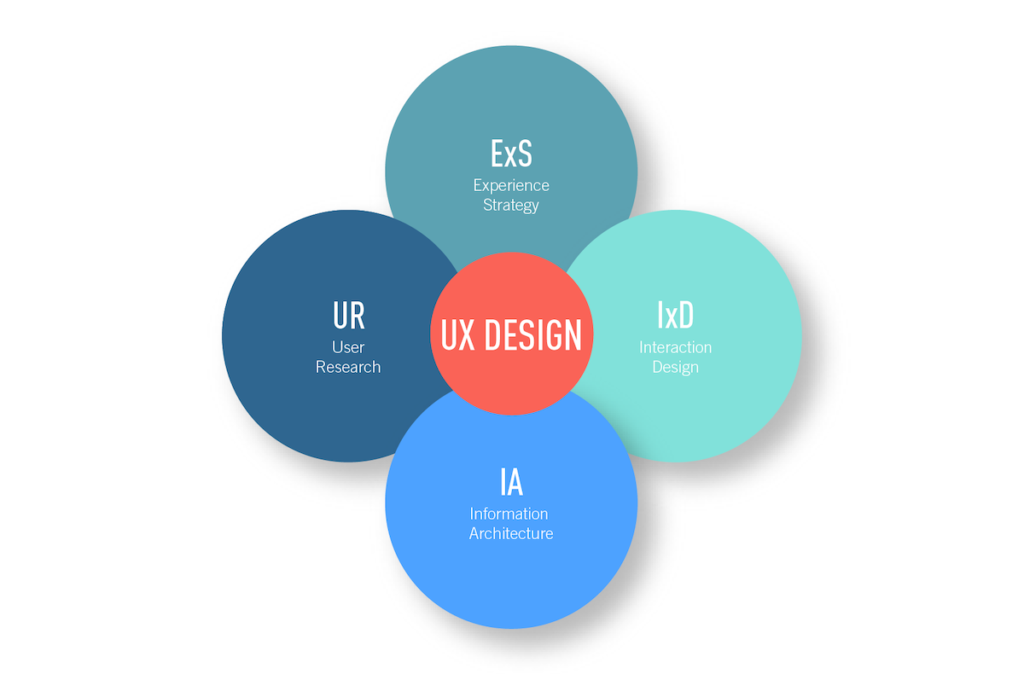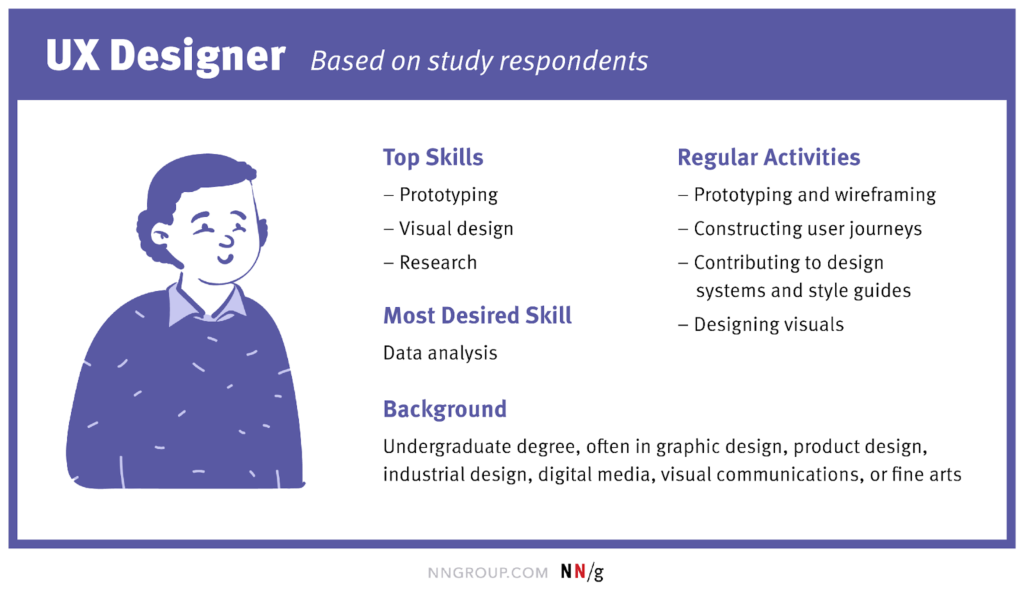Degrees for UX Designers: Are They Mandatory?

Table of Contents
- A Degree for UI-UX Design: Does It Help Fetch Employment?
- Is a Degree in UI-UX Design Mandatory?
- UX Design Courses Available as Alternatives to a University Degree
- Impact of a UX Design Qualification on Career Progression
- What Is the Future of UX Design?
- Key Takeaways
- Conclusion
- FAQs
Today, most businesses, ranging from large enterprises to start-ups, operate on digital platforms, such as mobile apps, websites, etc. Focus on user experience (UX) and user interface (UI) design is increasing with each day. It has gone beyond just writing the code for digital products. A good UX design can help a system or application with smart working options. It is achieved through an in-depth understanding of customer requirements and expectations.

UX professionals address end-users’ challenges and investigate ways to solve them. Most businesses, large and small, use digital platforms such as apps, websites, and social media. Although university degrees aren’t a requirement for UX design, some employers perceive the need for academic qualifications as a basis for hiring. This blog will help you find out whether a degree for UX designers is mandatory.
Companies that are actively investing in UX design witness a cost-effective customer acquisition and support cost, maximized customer retention, and increased market share. In the years to come, there will be an even higher demand for UX designers, because a lot of products will need to be redesigned and reengineered.

A Degree for UI-UX Design: Does It Help Fetch Employment?
A UX design qualification will help you get to the first round of interviews without prior UX job experience. Hiring managers will look at candidates, and check if they have completed specialized training or certification to equip them for the job.
Obtaining the best degree for UX design out there will create an initial impression that will lead to candidates getting selected for initial interviews. However, if you have a few years of working as a UX designer, companies will be less concerned with your qualifications and more interested in the real-life projects you’ve worked on so far. Professional credentials in relevant fields can help a designer acquire subject matter expertise and real-time experience, and also help them bag employment at reputed firms.
Is a Degree in UI-UX Design Mandatory?
What degree do you need for UX design? The actual question is, do you need a degree in the first place? It’s not mandatory to have a university degree for UX designers. UX design-related experience will suffice, but you’re almost certainly going to need some kind of professional experience to offset the absence of a degree.

Primarily, a UX designer requires an innovative and creative mindset with a thought process that follows a scientific and logical approach. Reputed companies look for UX designers who can resolve real-life design problems. A designer’s individual ability to grasp and apply knowledge to varied design problems may provide the much-required impetus to their career progression as a designer.
However, some organizations may insist on a university degree for UX designers as a standard policy. A majority of the UX designers do have at least one university degree (preferably in fine arts, digital media, and the like) as an academic qualification. Degree-holders are more likely to be successful than those without a degree, and a degree can add some credibility and weight to your profile. UX design-related courses or programs, such as human-computer interaction, interaction design, and information architecture, overlap with the skills and concepts that are common to UX design.
UX Design Courses Available as Alternatives to a University Degree
What degree does a UX designer need? Well, a degree for UI-UX design is not mandatory. However, experts often agree that certification programs can be just as good as a formal degree program. Numerous private training institutes and agencies offer varying options for studying UI-UX degrees online. Skillshare, for example, can be more convenient and cost-effective for working professionals. UX design is a domain that blends well with newer alternative instruction methods. Learning platforms like Coursera also offer courses, such as the Google UX Design Professional Certificate.
Mentorship is another effective method available. Although it can’t be pursued as an alternative to a formal degree for UI-UX design, it can act as a great support to your learning program, accelerating your chances to get hired. A mentor with vast experience in the UX field can guide you on how to resolve design issues or manage your career better.
Impact of a UX Design Qualification on Career Progression
Many people working as UX designers do not hold a university degree. Nonetheless, it can pay off to receive formal education in UX design. Most companies insist on certifications to hire the best resources, and they use this norm to filter during their hiring process. Beginners can use UX design certifications as a launching point for developing advanced design skills.

Writing comprehensive reports, making presentations, and team management are some skills you can learn when studying for a degree. This learning acquired during the course may come in handy during interviews, when facing an employer. Today, when operations around the world are moving online in overwhelmingly large numbers, you can even opt for a UI-UX degree online. A UX degree for designers can help build a network that helps with the right opportunities and roles.
What Is the Future of UX Design?
UX design-related jobs are touted as one of the most in-demand careers today. Additionally, there will be abundant opportunities for UX and UI designers, especially with accelerating digital transformation underway globally. And as technologies, such as artificial intelligence, virtual reality, and augmented reality (AR), have evolved from just being a prospect into real-life applications, pursuing a UI-UX degree online can work wonders for your designing career.
This technological advancement has become one of the latest trends in design, and will continue to be, in the coming years. Major organizations and companies employ UX designers across various verticals, such as ecommerce and sales. Consulting companies like Infosys, Tata Consultancy Services, and Wipro have started their own digital firms to build products crafted with excellent UX design.
The requirements for UX design are going to be massive in the future, when companies start investing in enterprise solutions. Augmented reality, emotive interaction design, data visualization, and voice user interface are some trends in the UX design industry to look out for.

Key Takeaways
- Today, the demand for UX design roles is accelerating, and will continue to, for many years to come.
- Web and mobile platforms will continue to be in vogue, and would need more UX designers.
- UX designing makes for one of the most sought-after professions, with over 87% of recruiters saying one of their top priorities is acquiring qualified UX designers.
Conclusion
Many software applications or products have improved in terms of design, functionality, efficiency, and ease of use. But what degree does a UX designer need? Many universities in India and around the world offer programs in design, which cover many aspects of UX design. There are private training institutes that provide various online options, such as a certificate program, which may improve your chances of getting employment.
While a degree for UX designers is not a mandate to excel in the career, it can be an added advantage. One of the best options is to choose from the plethora of UI-UX degrees online.
FAQs
The University of Washington and Carnegie Mellon University are two of the many prestigious institutes that offer degrees for UX designers. There are also some institutes in India that offer courses in UX design, ranging from undergraduate and postgraduate to certificate programs. These include the Indian School of Design and Innovation, MIT Institute of Design, and the Indian Institute of Technology.
As far as UX design-related jobs are concerned, the focus will remain on screens and displays, and the future augurs well for AR and emerging technologies. UX professionals are in global demand, as digital assistants like Siri, Alexa, and Google Assistant, have already found their way into our pockets and homes. UX design-related jobs are touted as some of the top jobs in demand globally. There will be abundant opportunities for UX and UI designers, especially with the accelerating global digital transformation
There are several roles that UX designers can get into, as they gain experience and grow their skills. These roles span the hierarchy in an organization, ranging from entry-level to senior-level jobs, such as management, freelancing, consulting, etc. You must first focus on becoming a dedicated UX designer, and then aim at becoming a UX manager or director (if you so wish).
Students and working professionals can find alternatives to university degrees relating to UX design. In addition to graduate and postgraduate programs, many private training institutes and agencies offer certifications for UX designers.
One of the most effective ways to get educated about UX design is finding a mentor. It can help you manage your career, solve design issues, and get hired by top firms. You can also network with other UX designers to learn more. There are plenty of video tutorials available on popular platforms like YouTube. Most UI-UX design courses today are available online, some of which are free, and others cost money. Coursera, Udemy, and edX are some reputed online alternatives available.
Latest Blogs
Explore how Google’s 2025 AI search updates triggered ranking chaos. Learn actionable strategies to adapt your SEO for AI Overviews, zero-click searches, and SERP volatility. Stay ahead now.
Learn how to rank on AI search engines like ChatGPT, Perplexity, and Gemini by optimizing your content for authority, structure, and relevance. Stay ahead in AI-driven search with this strategic guide.
Explore the best healthcare SEO services for your medical practice. Improve online visibility and effectively reach more patients in need of your services.
Get your hands on the latest news!
Similar Posts

Design
7 mins read
15 Best Firms Offering Design Services in India

Design
5 mins read
All You Need to Know About Data-Driven Design

Design
6 mins read